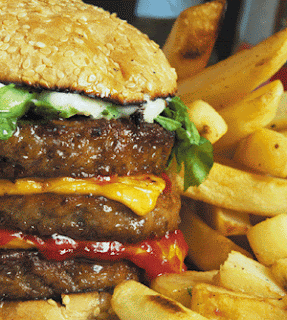It seems we eat the equivalent of a whole soccer team each year and we should refrain from munching on at least a few defenders, midfielders or attackers. Although we might want to do something else with this one (curb those smutty thoughts, dear reader).
Fatty spreads contribute to
‘Mindless
eating’ leads to 43% over consumption
By
Mike Stones, 26-Mar-2013
Fatty
spreads are the biggest offender in an epidemic of “mindless eating” that leads
Britons to
consume
43% more food each year than they should, warns new research commissioned by
Weight Watchers. The study revealed that the average Briton
ate 1,270kg of food a year – the equivalent weight of a whole football team
– representing
384kg more food than the body needed. Over consumption was driven by a process
of "mindless eating" where people made 220 food and drink decisions every
day, yet were conscious of only about 15.
‘Epidemic
of over-eating’
Zoe
Hellman, head of public health, Weight Watchers, said: “The current epidemic of
over-eating is hugely influenced by today’s overloaded food environment. With
the increased popularity of coffee shop culture and eating on the go it seems
that, everywhere you turn, there is yet another place where you can buy food,
cooked and ready to eat.”
The
biggest contributor to over-eating was fatty spreads, claimed the organisation.
Each week the average Briton consumes seven times more than the recommended
amount of butter and margarine-type spreads.
Weight
Watchers said most people ate nearly four times the recommended amount of meat
each week and more than twice as much bread and three times as many biscuits
and cakes. But we eat 69% less fruit and 75% less vegetables than medical
guidelines recommended.
‘Toxic
environment’
The
organisation said it aimed to arm consumers with “the tools and tactics” needed
to navigate through a “toxic environment”, to make better food choices for
permanent weight loss. Britain UK
‘Mindless
eating’ – in numbers
1,270
– Kg of food consumed each year by the average Britain
384
– Kg beyond which the body needs for nutrition
220
– Number of daily food and drink decisions
15
– Number of conscious daily food and drink decisions
69%
– Percentage deficit of fruit compared with medical guidelines
75%
- Percentage deficit of vegetables compared with medical guidelines.
Source:
Weight Watchers
©
William Reed Business Media Ltd 2013. All rights reserved.







